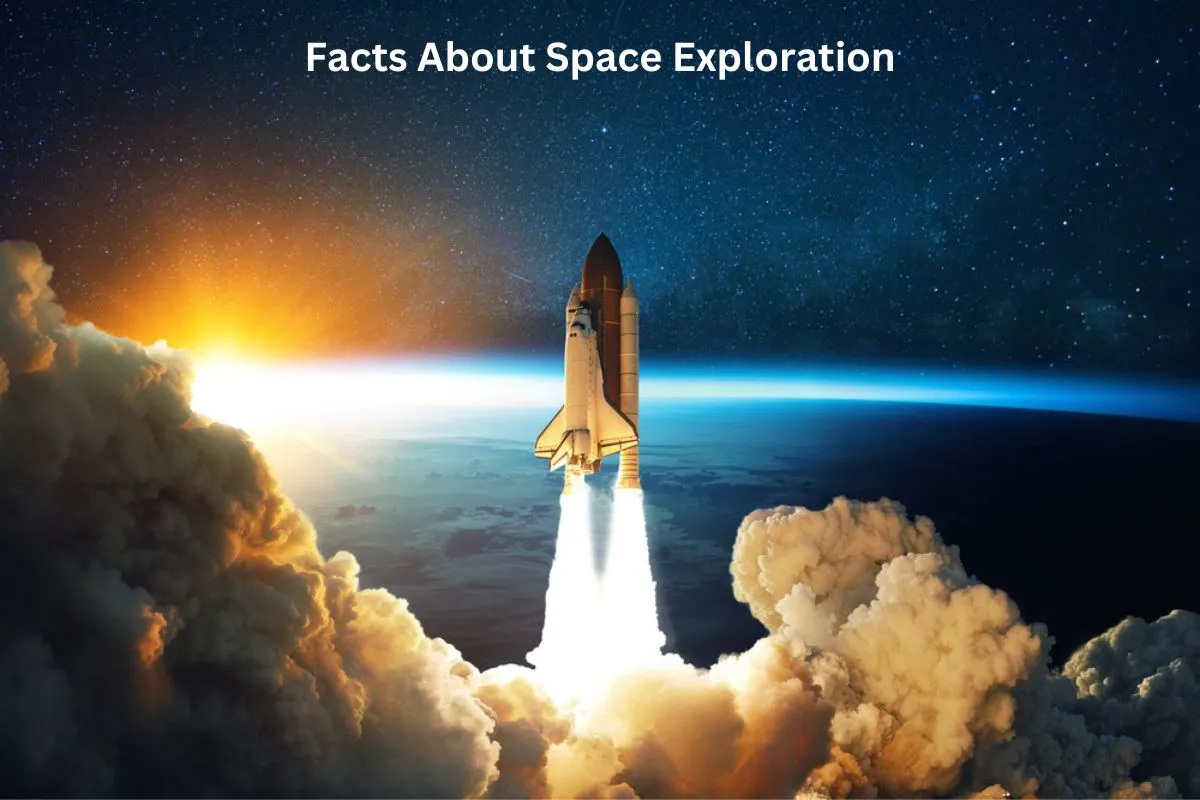Surprising Facts About Space Exploration

Have you ever gazed at the night sky and wondered what mysteries lie beyond the stars? Space exploration is one of humanity’s most ambitious journeys. It’s not just about rockets and astronauts; it’s about pushing the limits of what we know and discovering the unexpected. Every decade brings astonishing new facts some that sound almost unbelievable.
In this article, we’ll dive into some surprising facts about space exploration with real examples, scientific data, and the latest insights (2025).
The Beginning of Space Exploration: A Race Beyond Earth
The story of space exploration began in 1957 when the Soviet Union launched Sputnik 1, the first satellite. Just four years later, Yuri Gagarin became the first human to orbit Earth. These milestones shocked the world and sparked a race between nations to explore space.
Fun fact: The beeping sound of Sputnik 1 could be heard on simple radios across the globe – a chilling reminder that humans had entered space.
Surprising Moon Facts You Didn’t Know
When Neil Armstrong set foot on the Moon in 1969, it wasn’t just a technological achievement -it changed how humanity saw itself. But there are some lesser-known facts:
- The footprints left by astronauts on the Moon may last for millions of years because there’s no wind or rain to erase them.
- Moon dust smells like gunpowder, according to Apollo astronauts.
- Plans are underway to build Moon bases under NASA’s Artemis program, expected to send astronauts back by 2026.
Just like climbing the tallest mountain on Earth challenges human limits, exploring the Moon has its own unique risks
Satellites: Silent Helpers in Our Daily Lives
We often forget how much our lives depend on space technology. The satellites orbiting Earth are not just scientific instruments — they are the backbone of modern life.
- GPS systems guide us to new places.
- Satellites warn us about cyclones, monsoons, and climate change.
- Even your WhatsApp call relies on satellite communication.
As of 2025, there are more than 9,000 active satellites around Earth (UCS Satellite Database). Without them, our modern lifestyle would collapse. Modern space missions also use advanced AI for navigation and data collection.
Mars: Humanity’s Next Big Dream
Mars has fascinated humans for centuries, but in recent decades, it’s become the focus of real exploration.
- NASA’s Perseverance Rover, which landed in 2021, is still exploring the Red Planet in 2025. It has discovered ancient riverbeds, suggesting Mars once had water.
- The rover is also collecting samples that may be returned to Earth in the coming years for detailed study.
- Companies like SpaceX are actively working on making human settlement on Mars possible by the 2030s.
This shows how space exploration is no longer just about science, it’s about the future survival of our species.
Black Holes: Space’s Greatest Mystery
If there’s one area of space that fascinates and terrifies scientists, it’s black holes.
- A black hole is so dense that not even light can escape its gravity.
- In 2019, the Event Horizon Telescope gave us the first-ever image of a black hole – a groundbreaking achievement.
- Some black holes, called supermassive black holes, are millions of times heavier than the Sun.
Studying black holes gives us clues about gravity, time, and the universe’s destiny.
Life in Space: Strange But True
Astronauts experience challenges in space that most of us can’t even imagine:
- In zero gravity, the human spine stretches, and astronauts can grow about 2 inches taller temporarily.
- They lose bone density and muscle strength, which is why astronauts exercise 2–3 hours every day on the International Space Station (ISS).
- The ISS orbits Earth every 90 minutes, meaning astronauts see 16 sunrises and sunsets daily.
These facts remind us how extraordinary human adaptation is when exploring beyond Earth.loring beyond Earth.
Quick 2025 Stats About Space Exploration
- More than 70 countries have active space programs.
- Over 200 successful launches were recorded worldwide in 2024.
- More than 9,000 satellites are currently active in orbit.
- The global space economy is valued at $546 billion in 2025 (NASA)
FAQs About Space Exploration
Space exploration helps us understand Earth better, develop life-changing technologies, and prepare for challenges like climate change and resource shortages. Many of the technologies we use daily — from GPS to medical imaging — came from space research.
The United States (NASA), China (CNSA), India (ISRO), and private companies like SpaceX are leading the race. Each has ambitious missions planned for the Moon, Mars, and beyond.
Yes, but it’s expensive. Companies like Blue Origin and Virgin Galactic already offer short trips for civilians. As technology advances, costs are expected to come down, making space tourism more accessible in the future.
Conclusion: The Universe Awaits
Space exploration is not just about rockets — it’s about human courage, imagination, and survival. From Moon landings to Mars rovers and black holes, every discovery brings us closer to understanding our place in the universe.
For more fascinating discoveries and surprising facts, visit Fact2Know.com daily. Stay curious, stay inspired!




